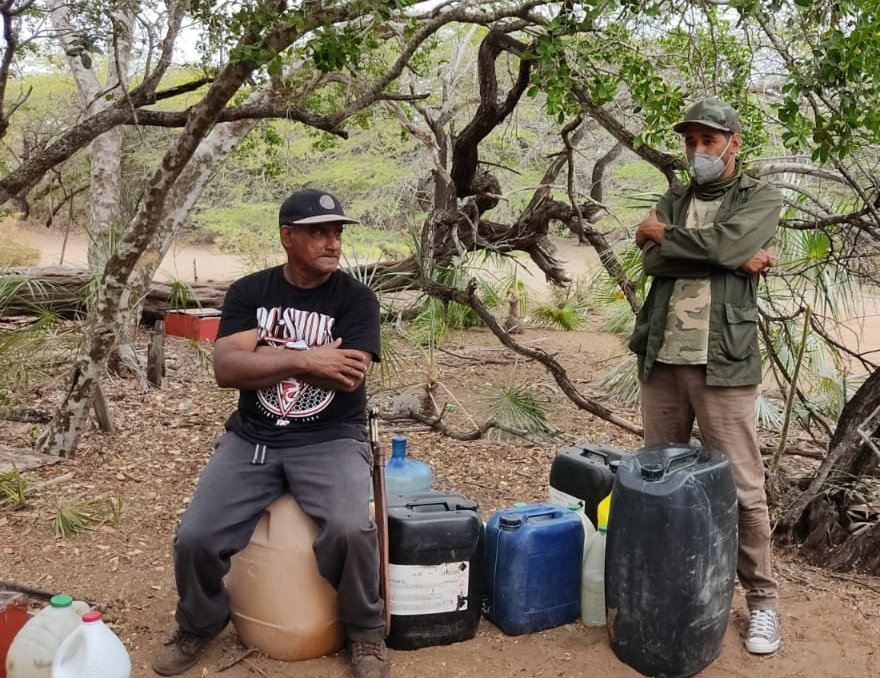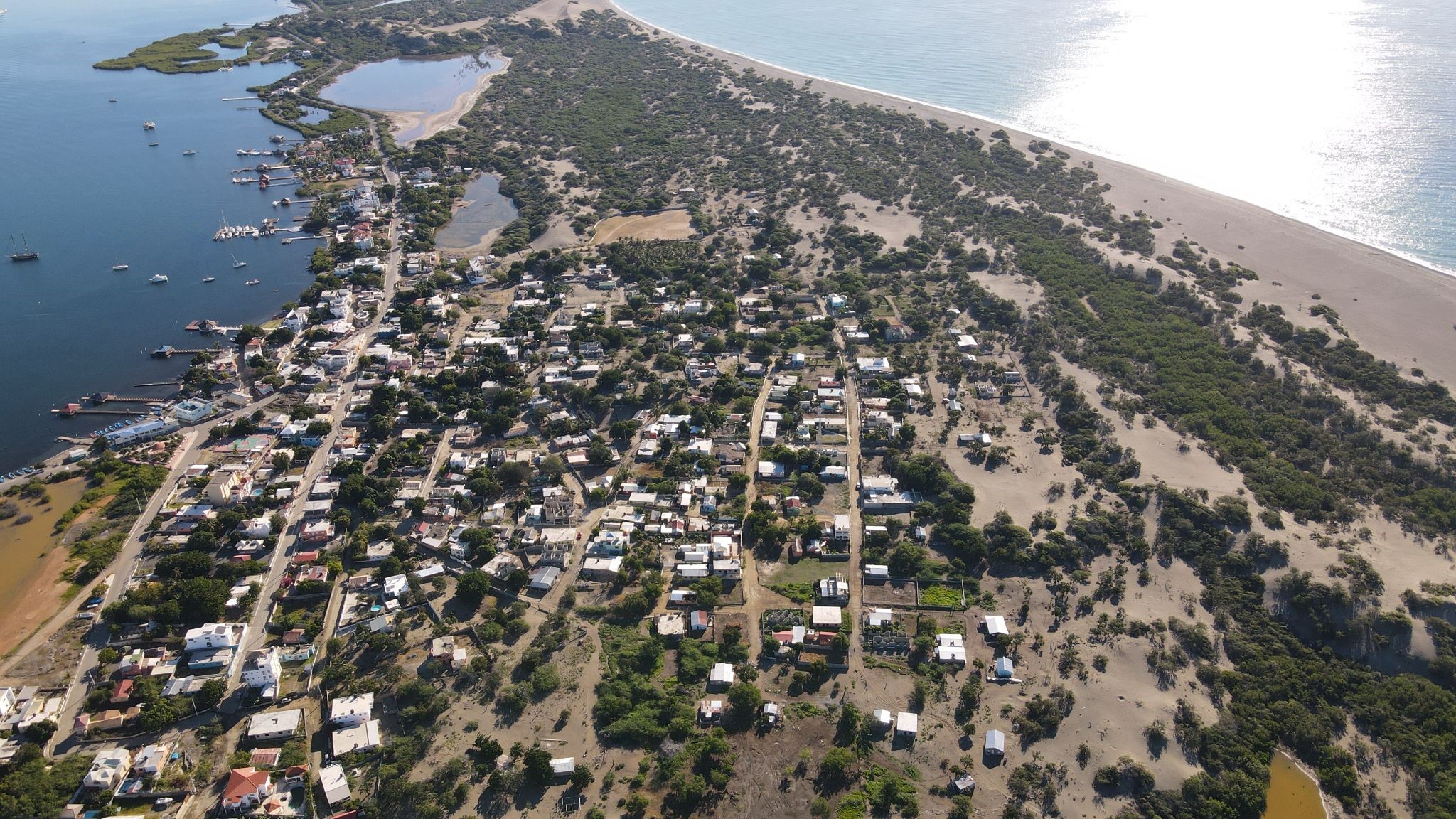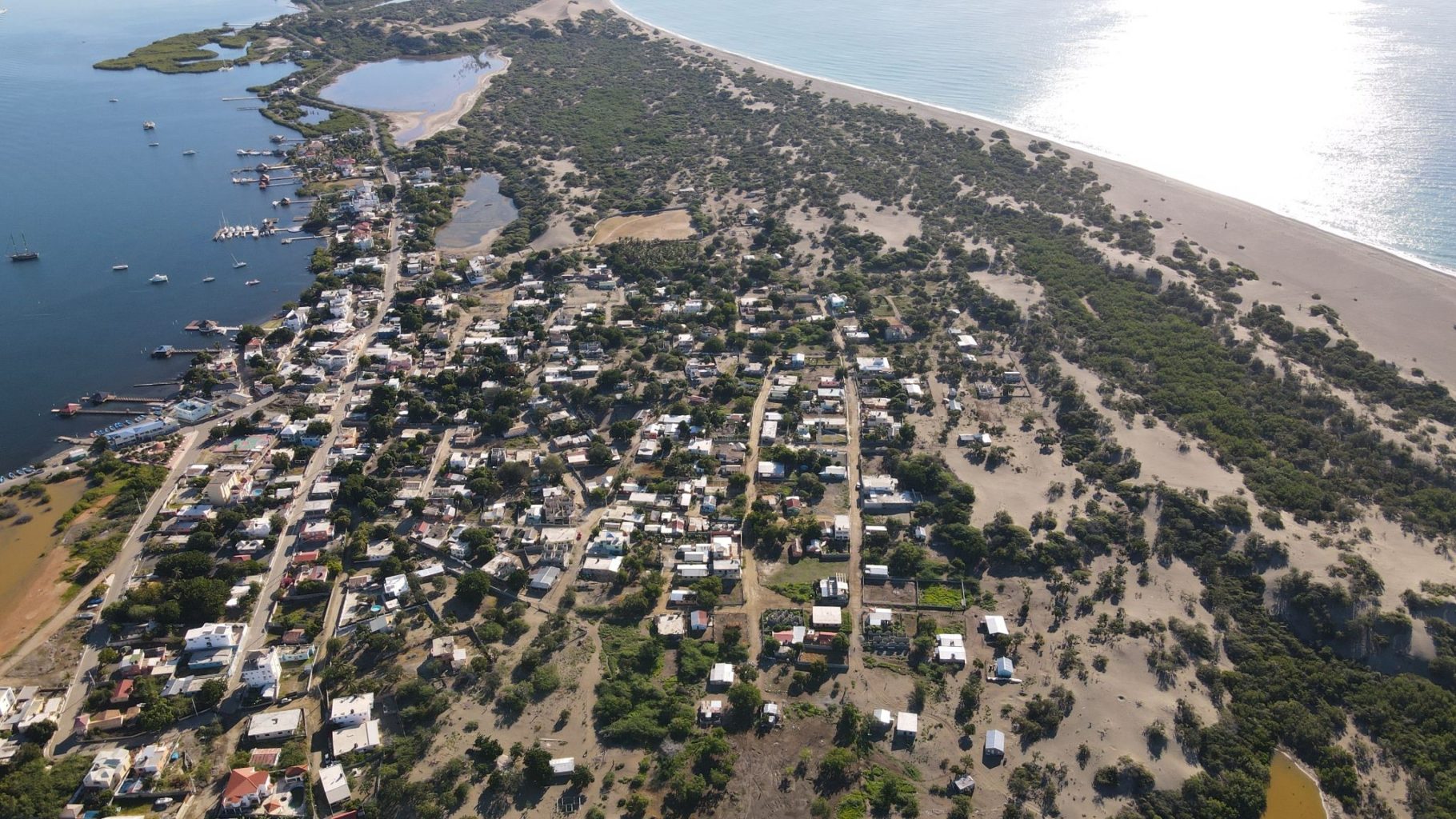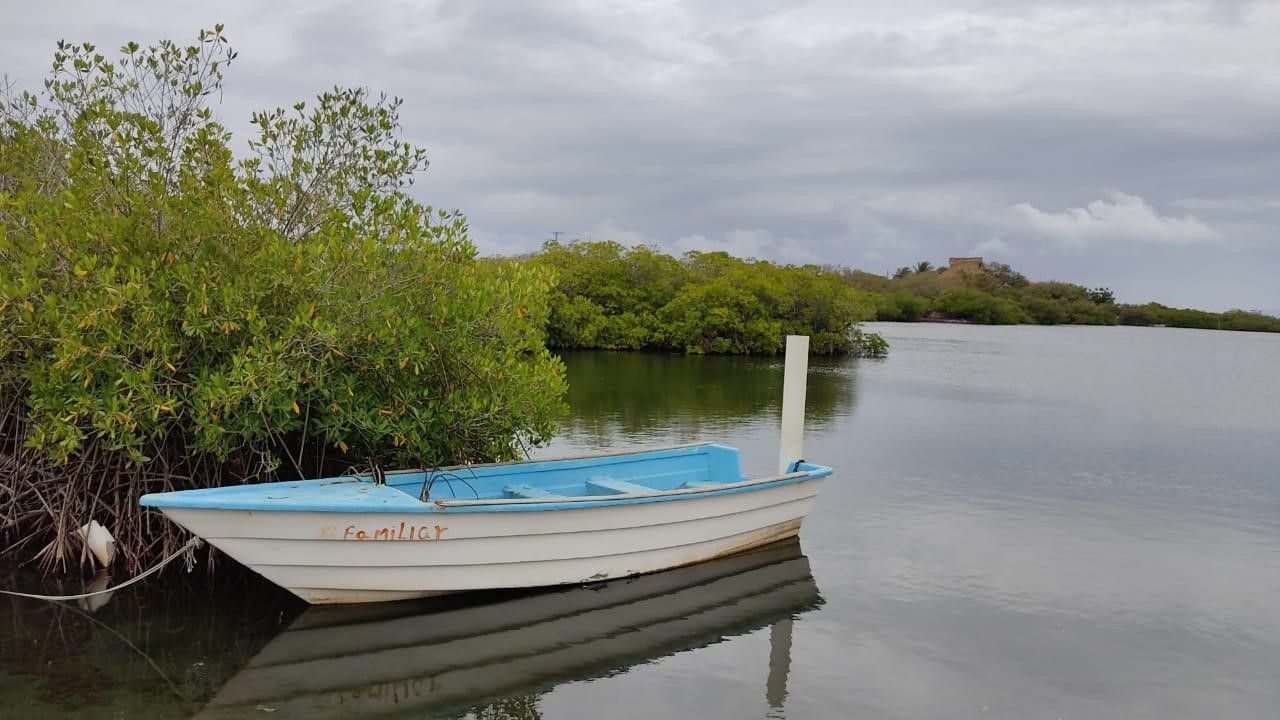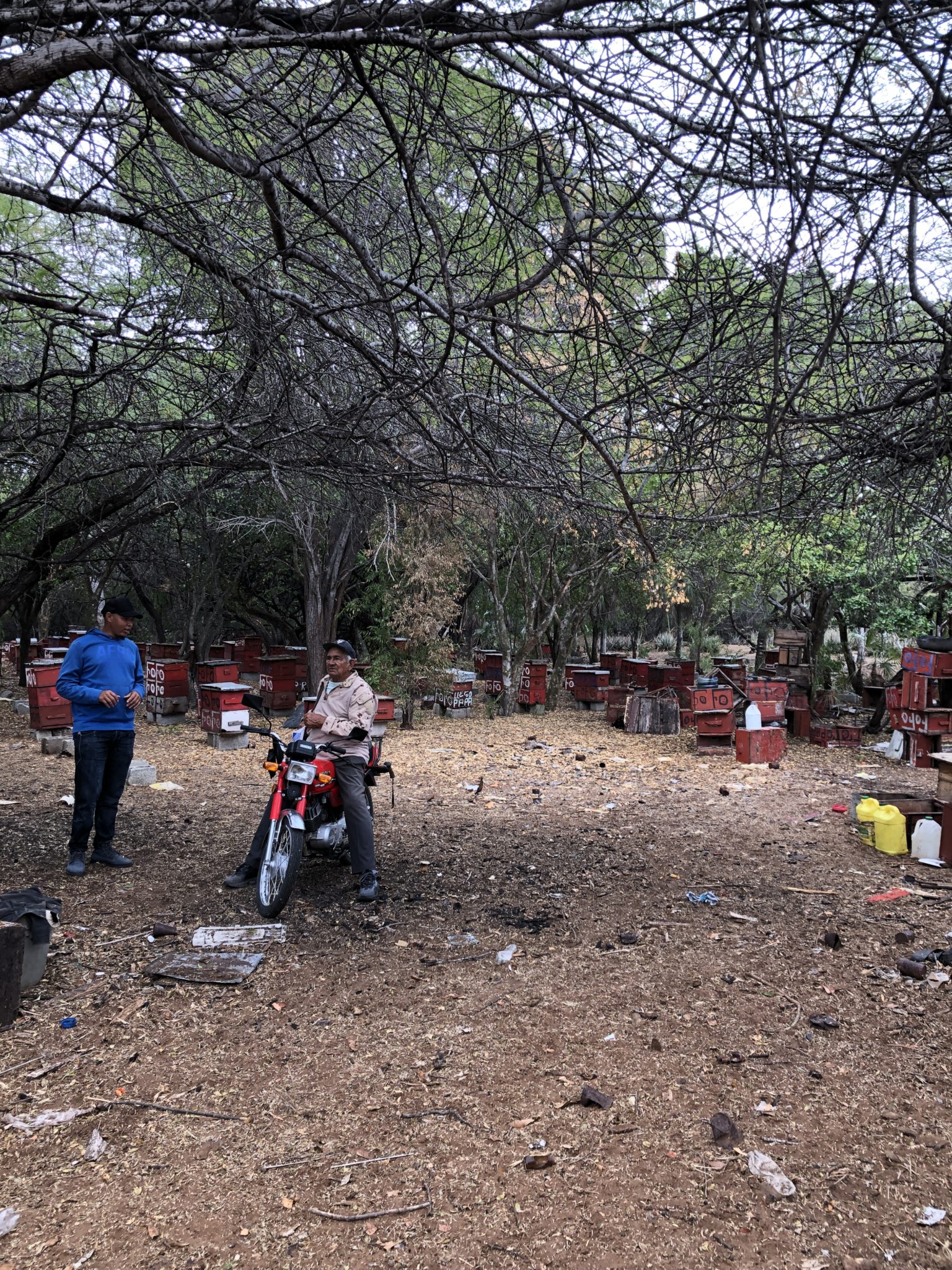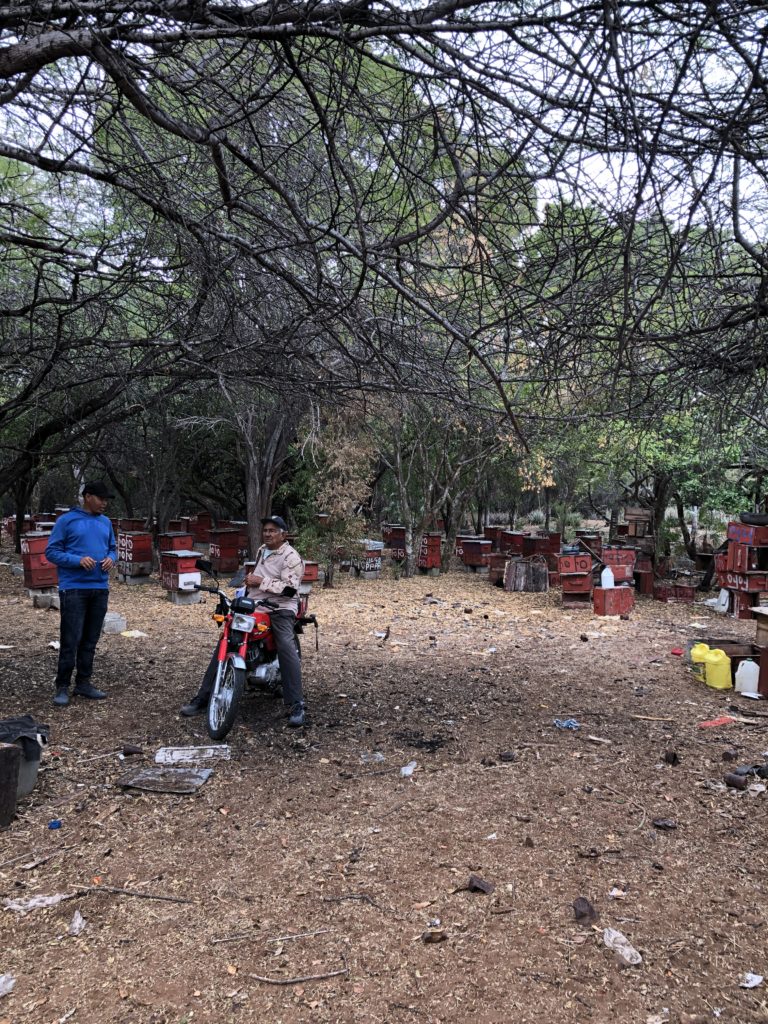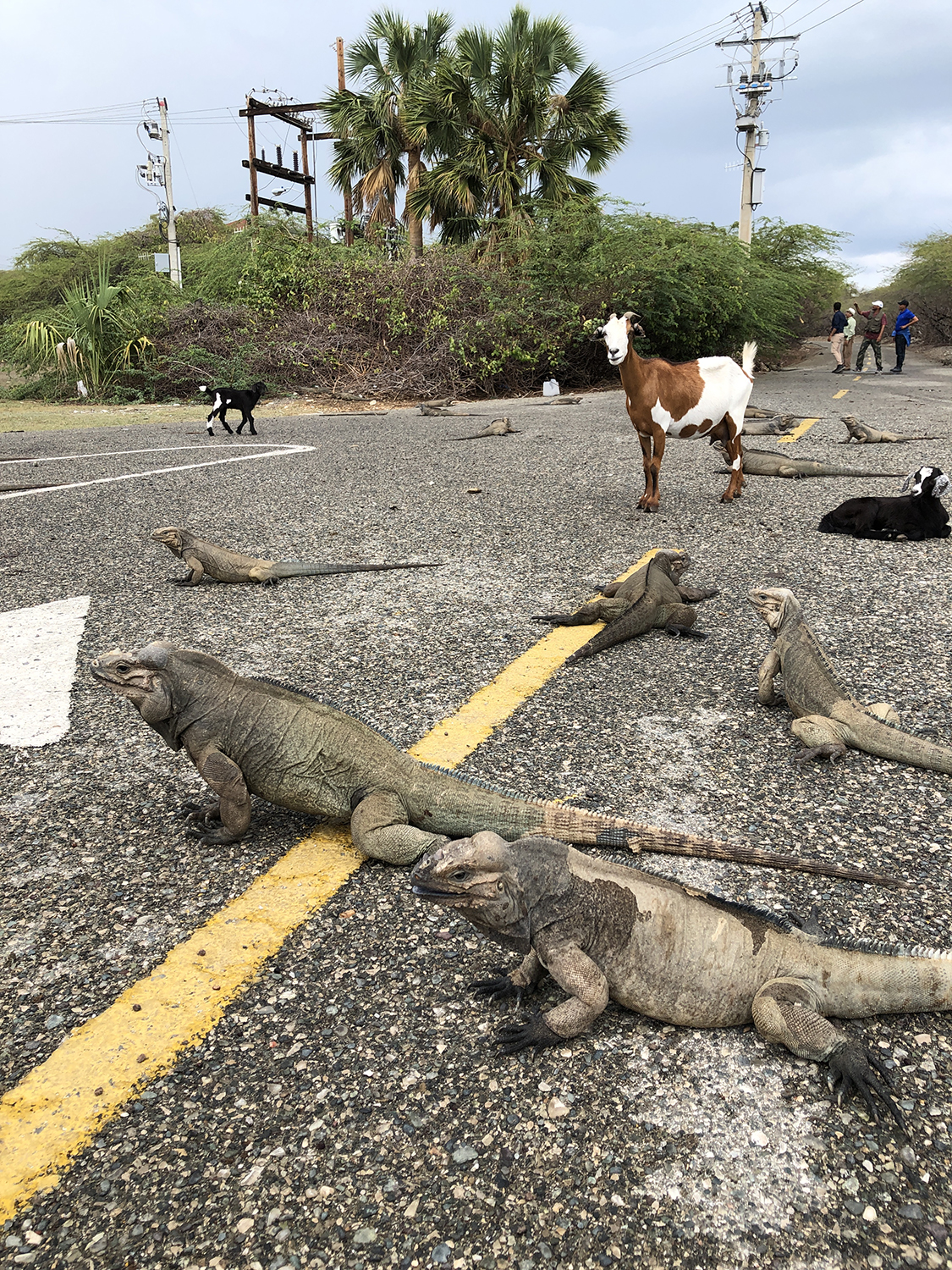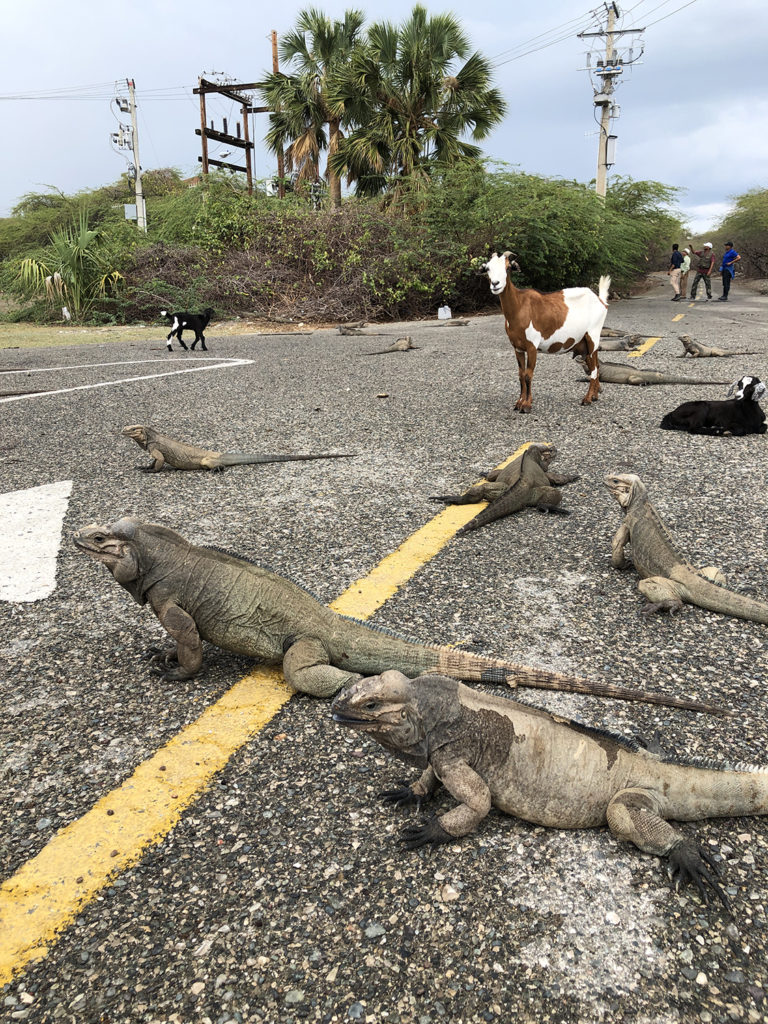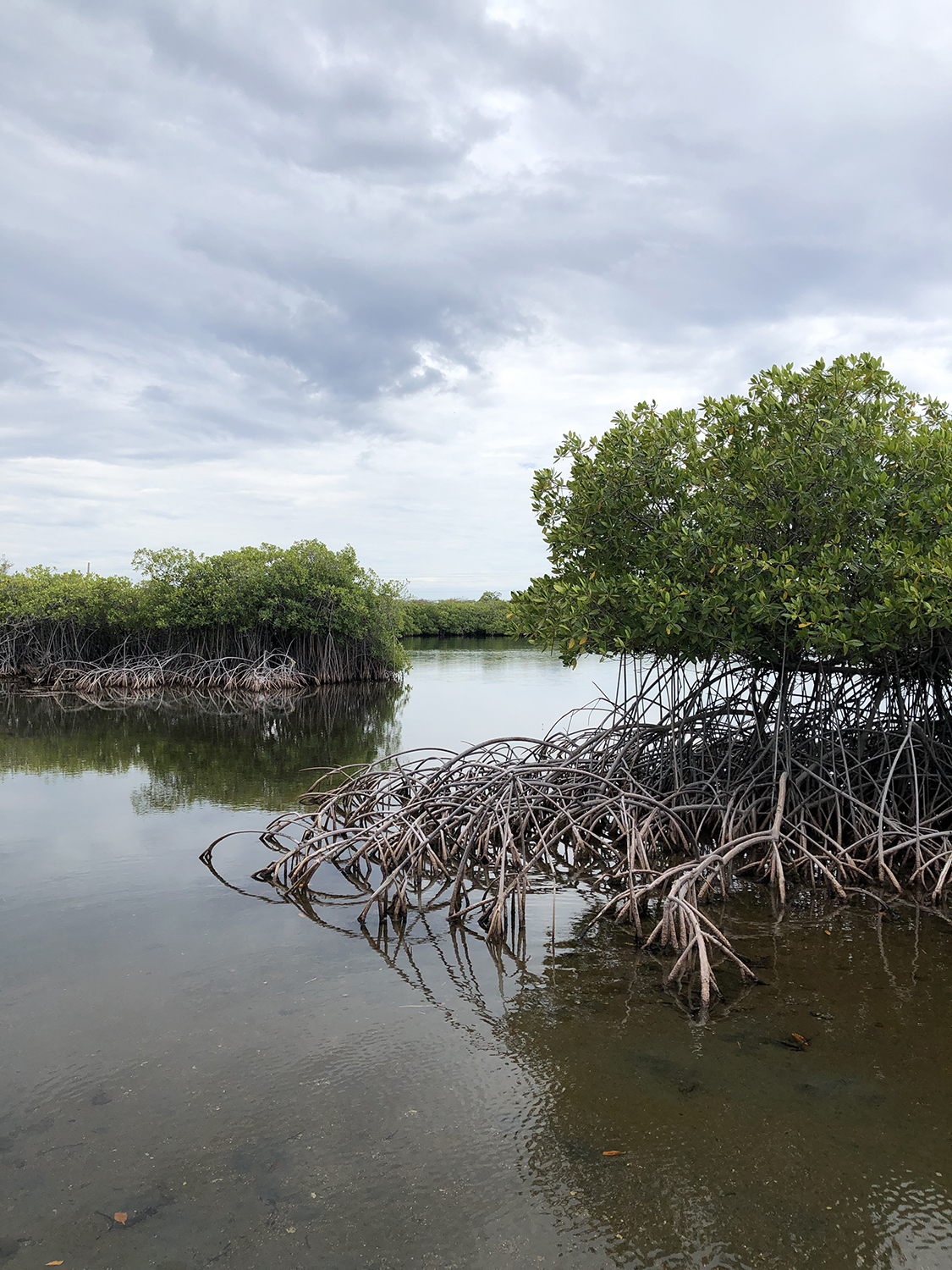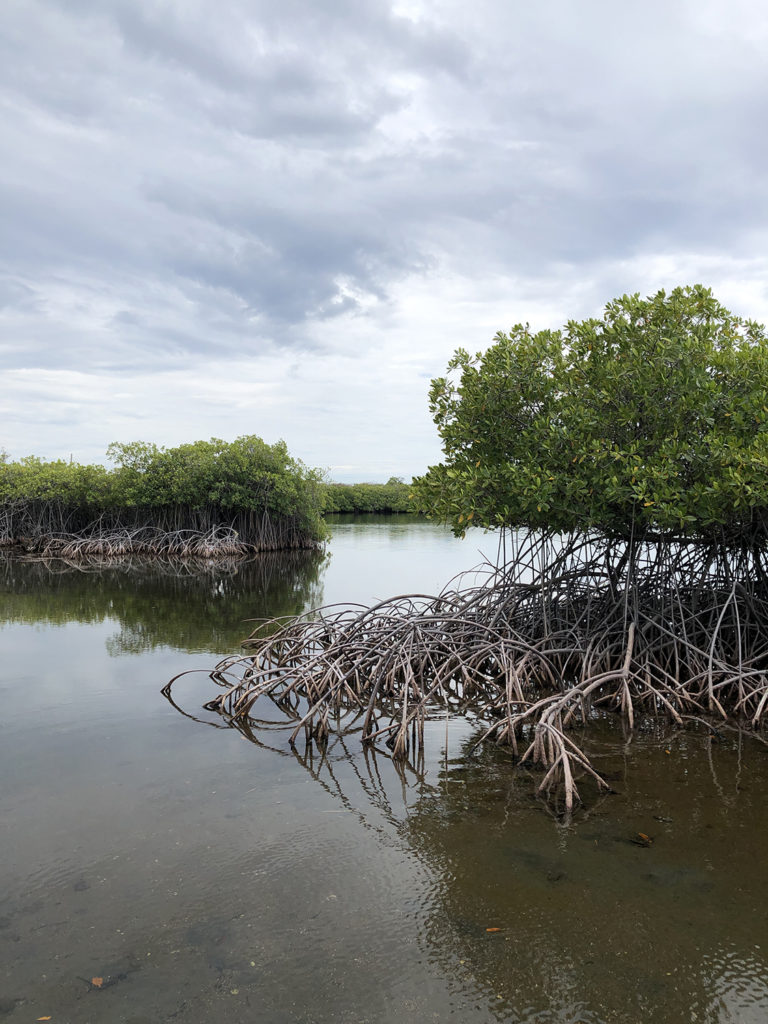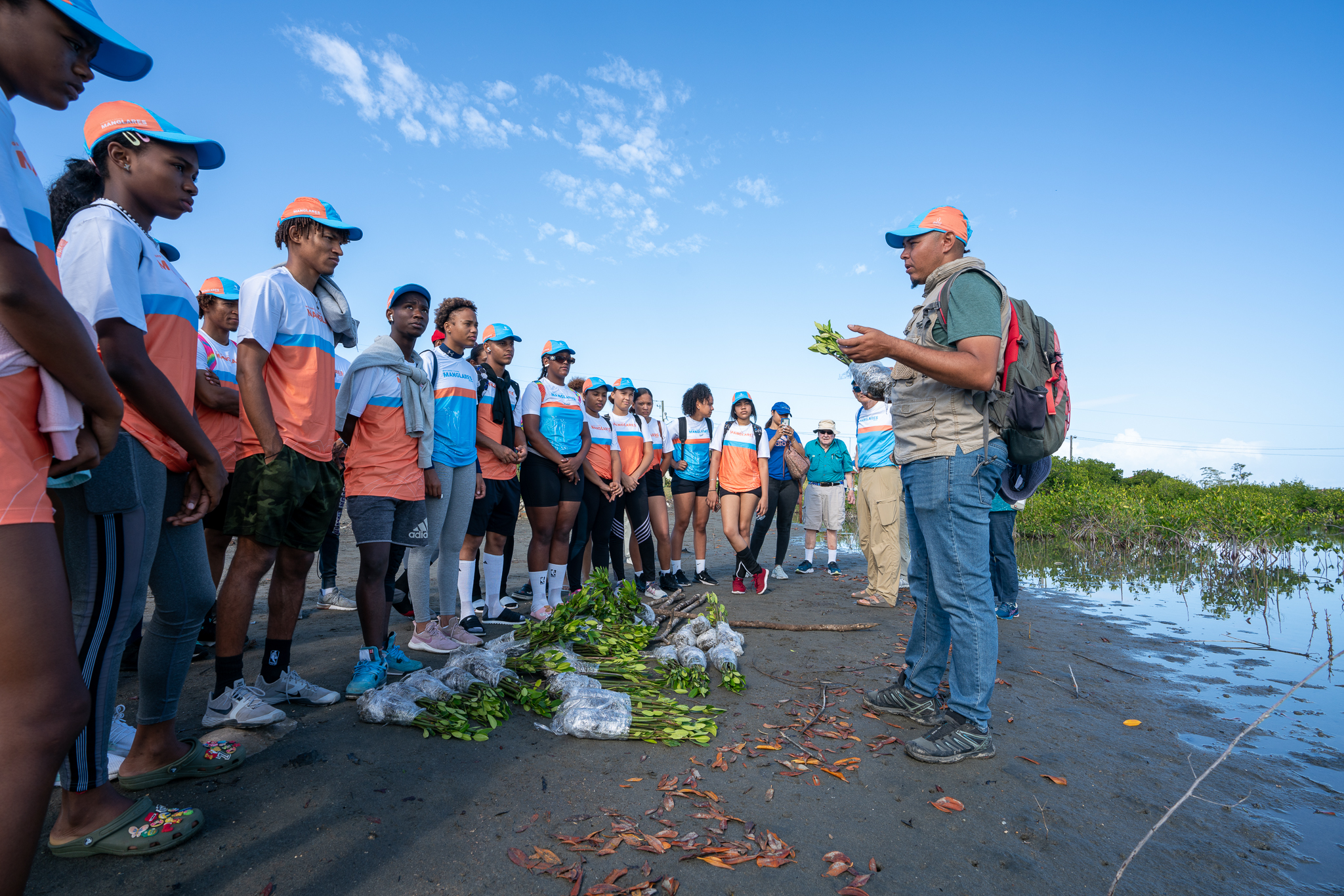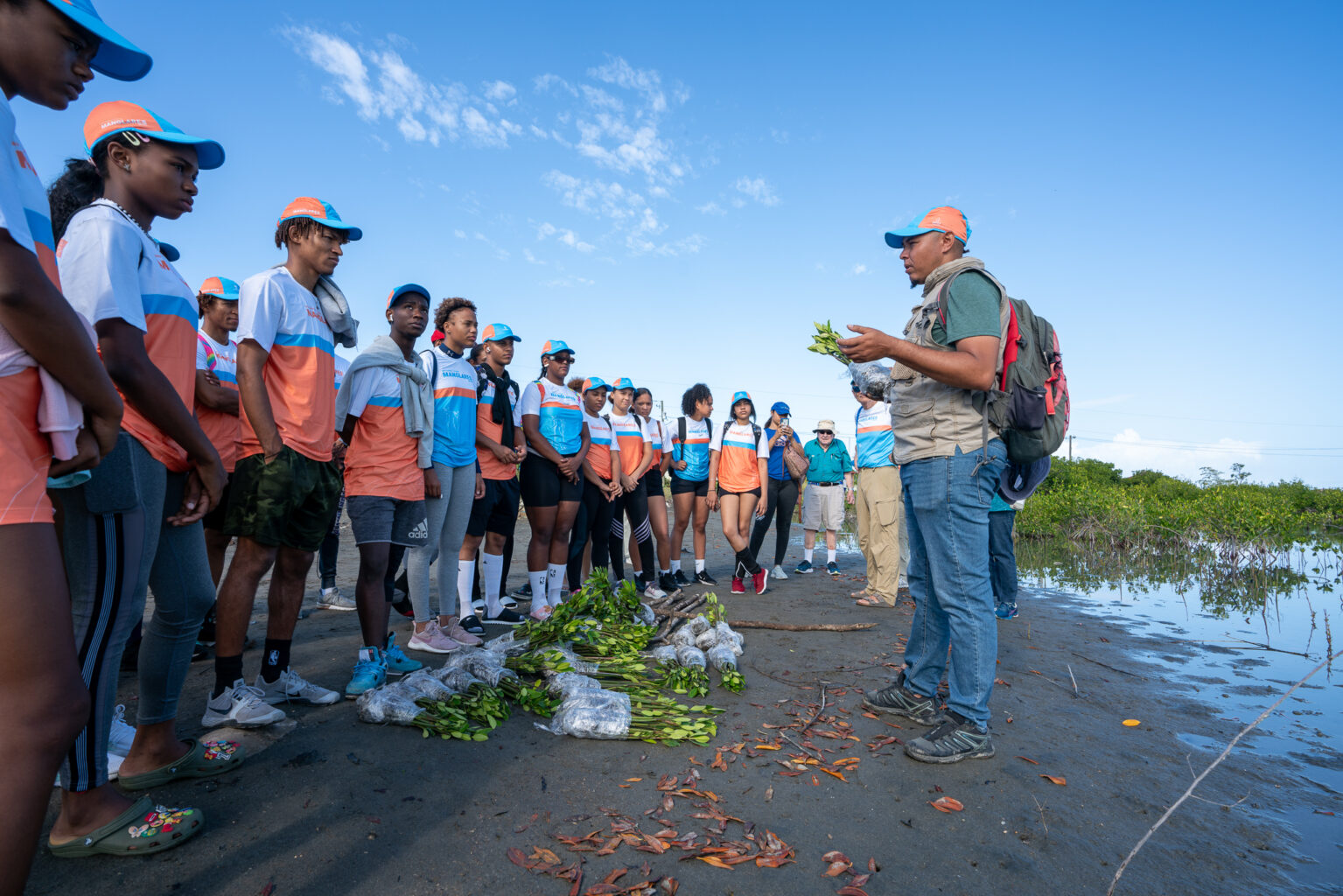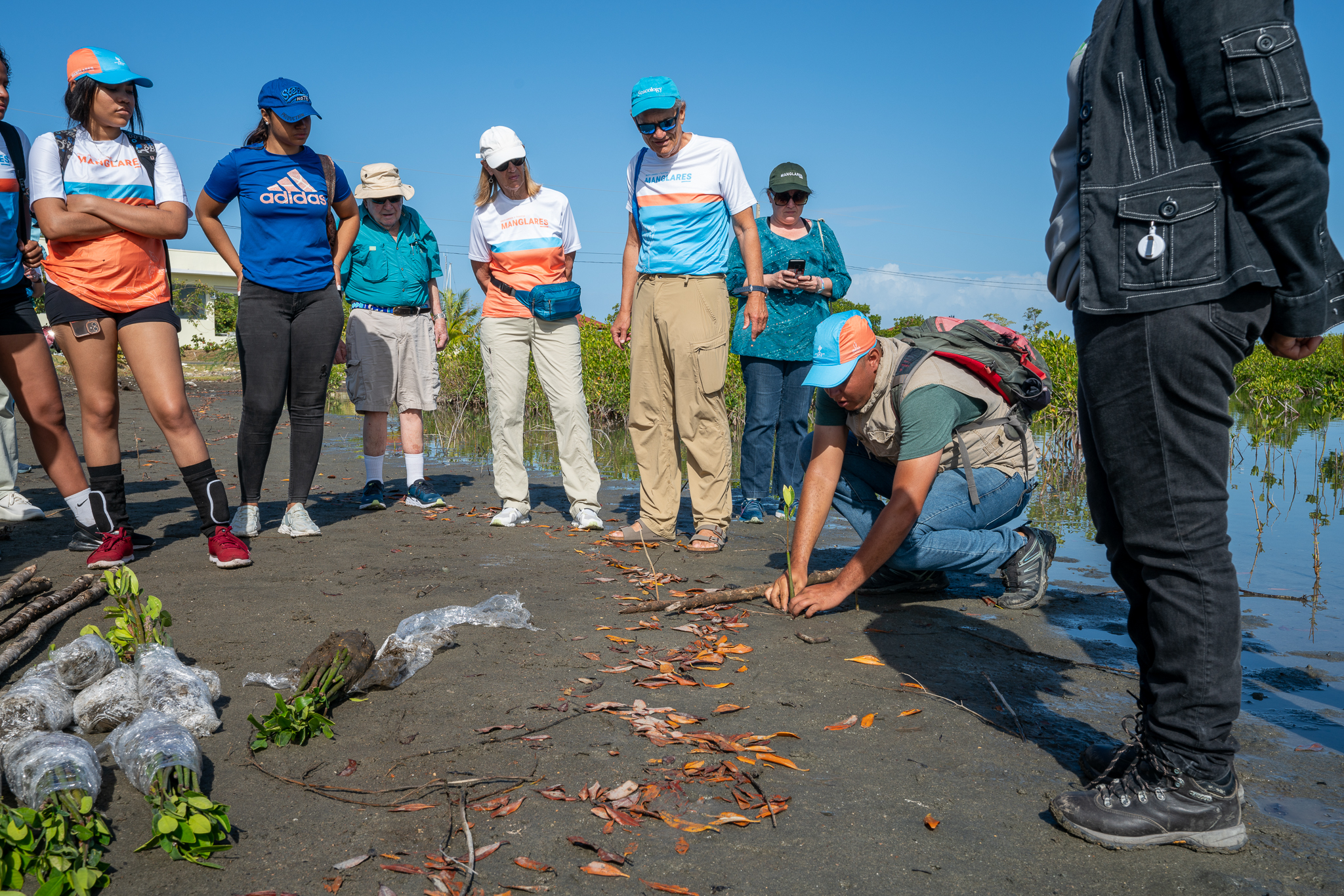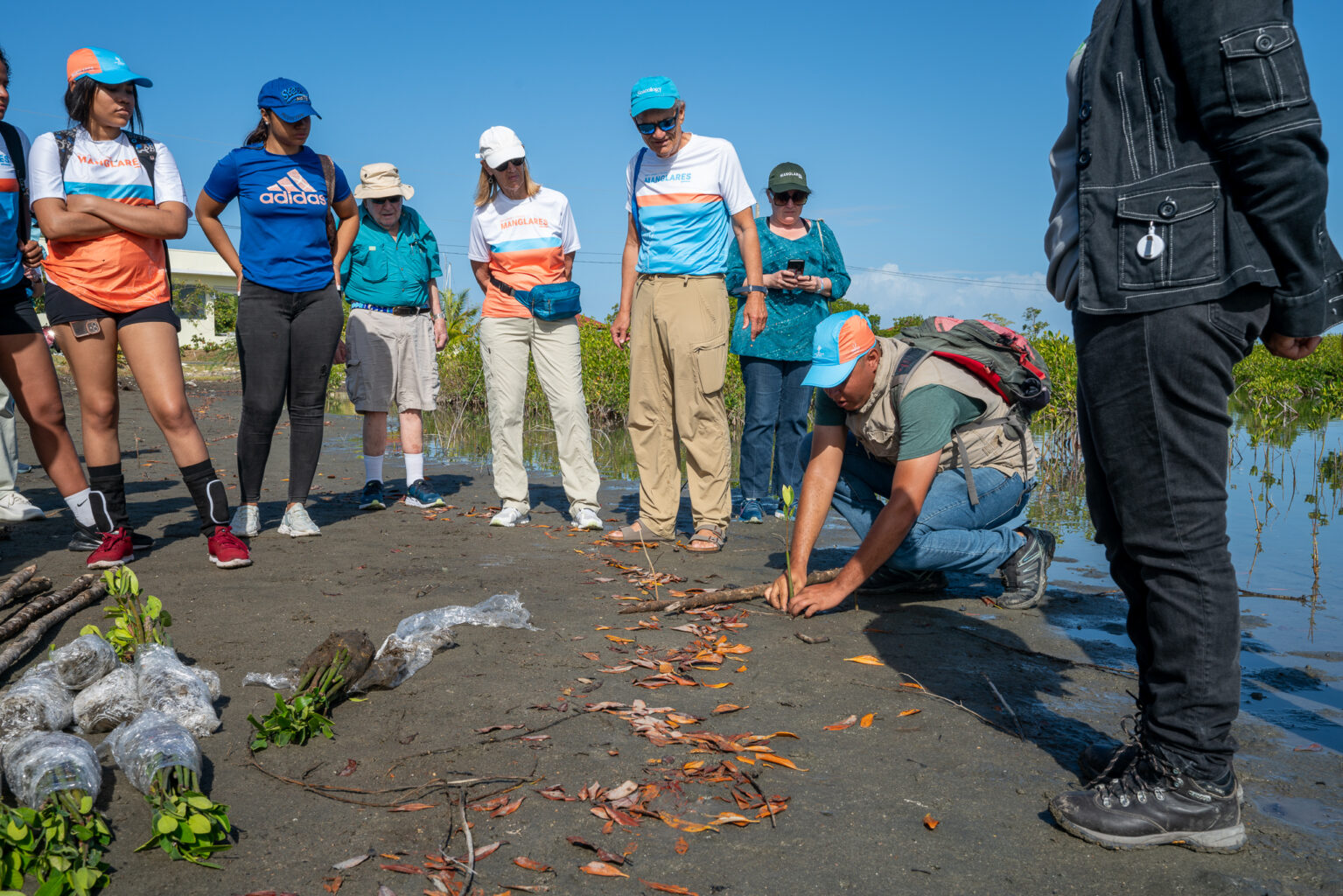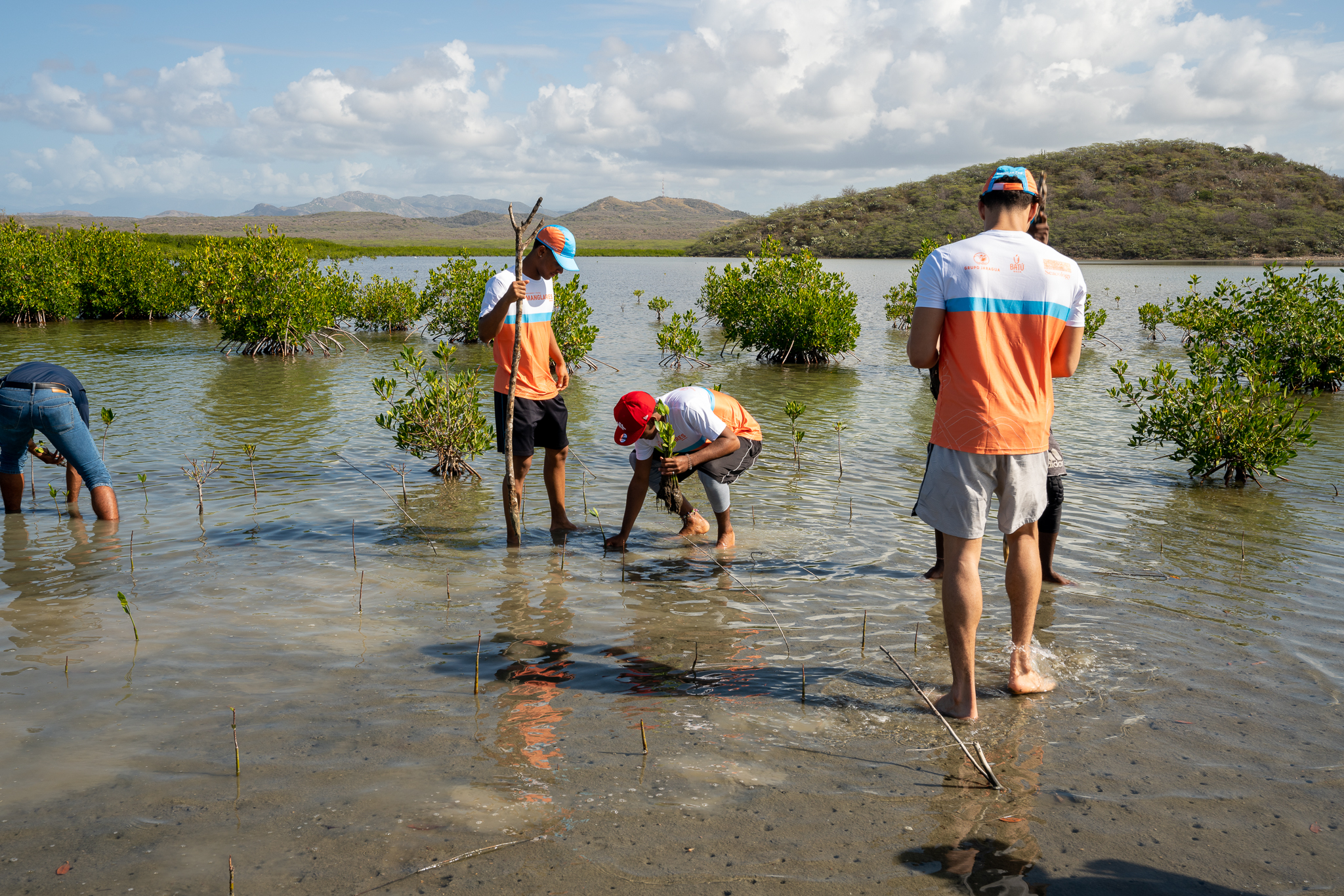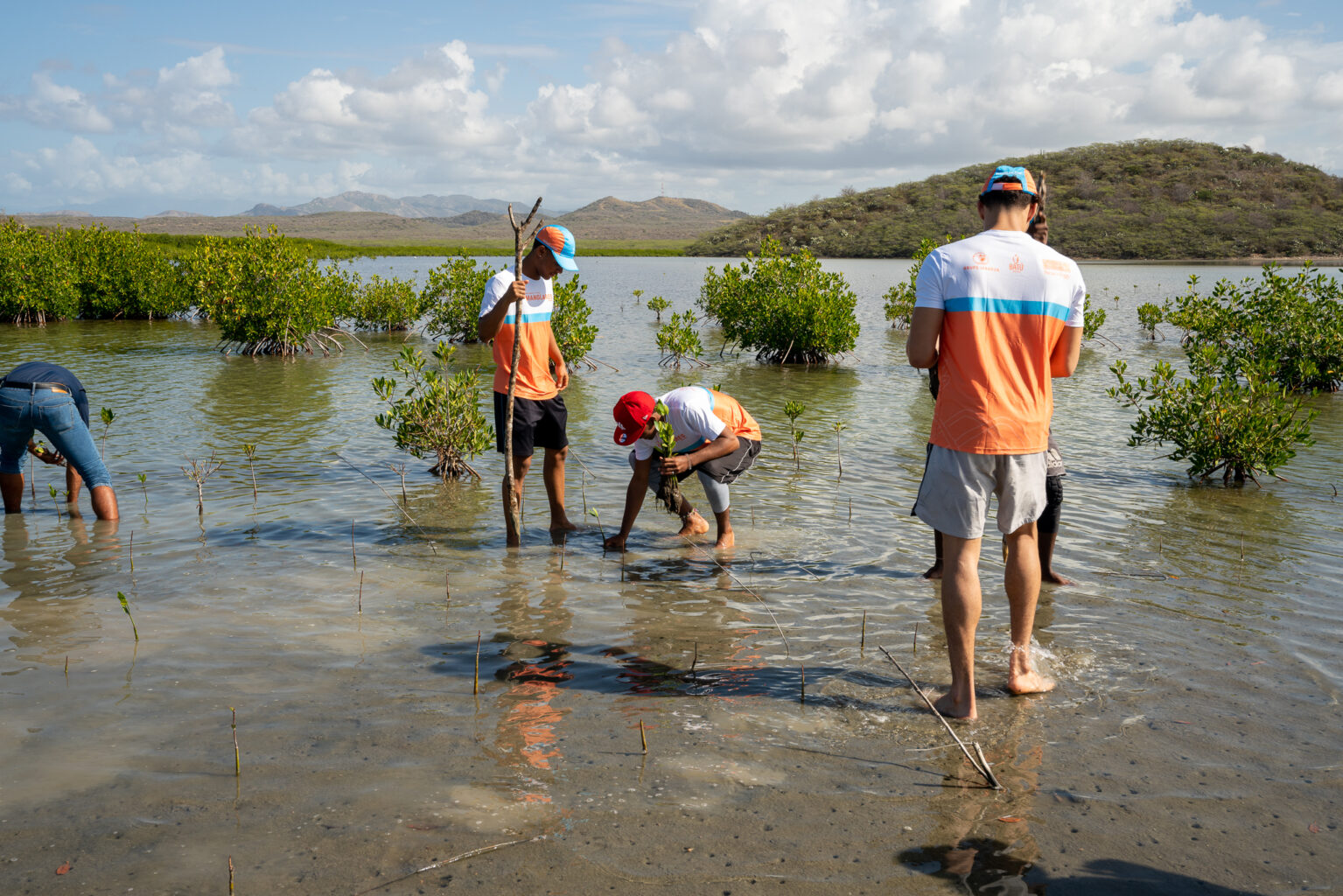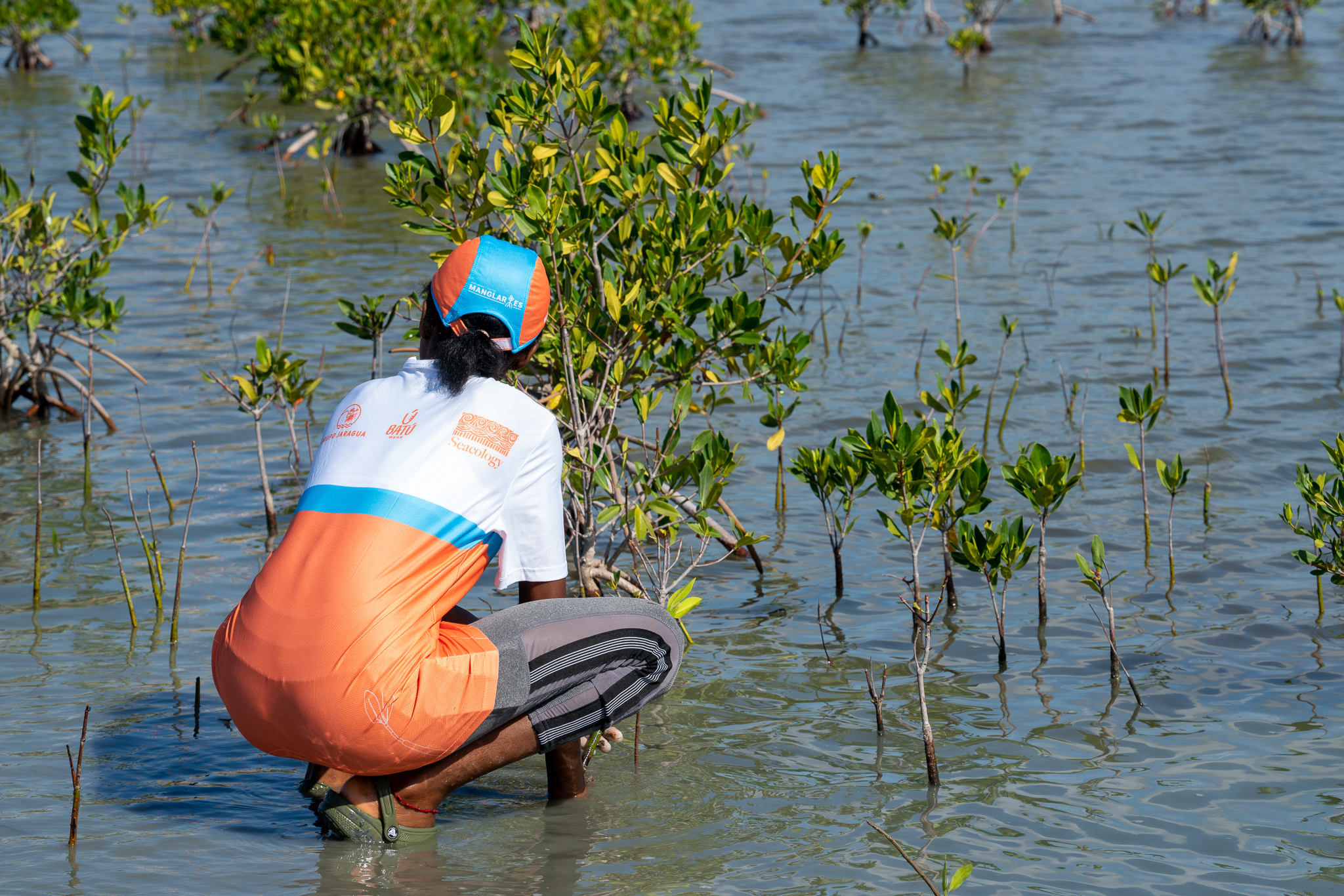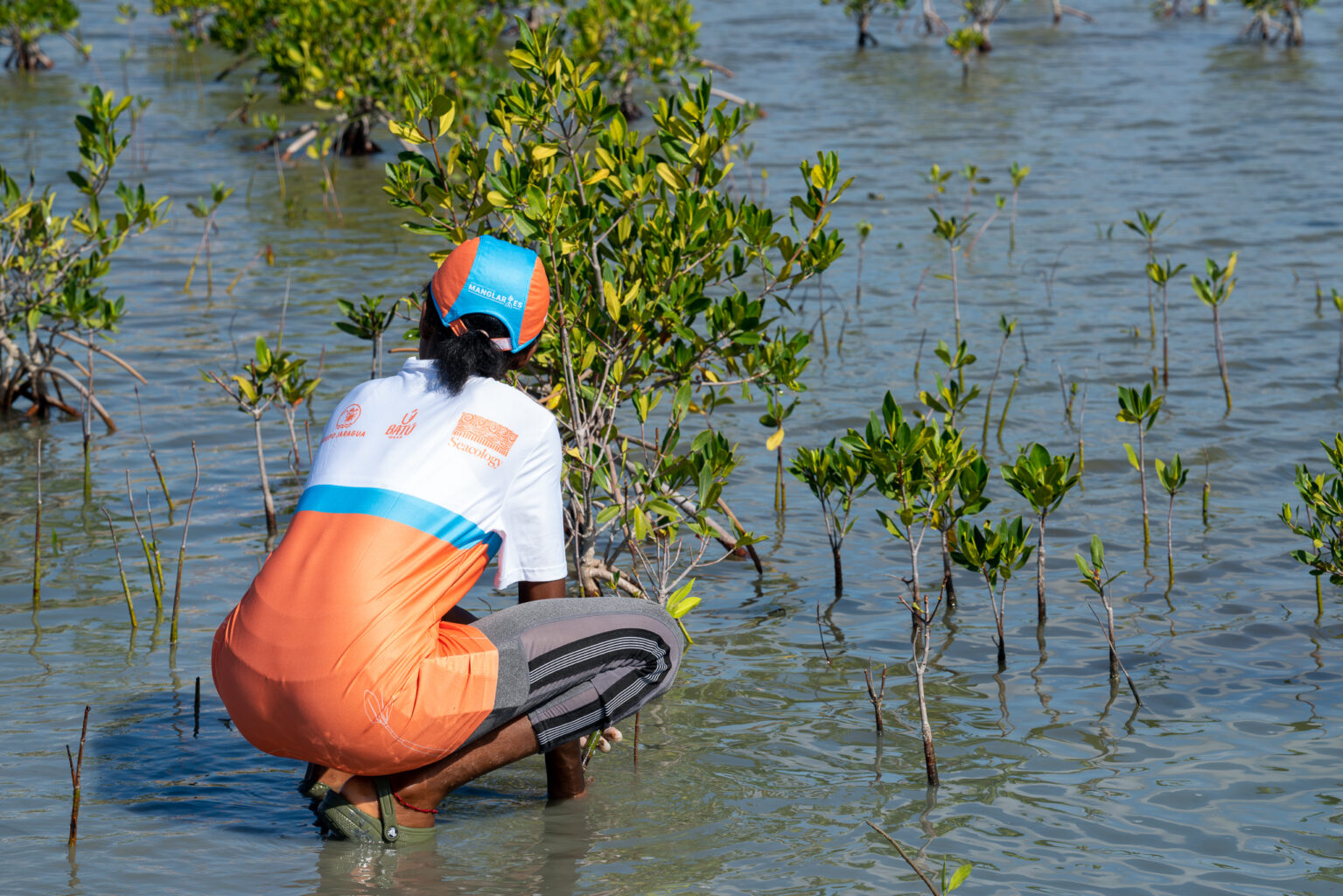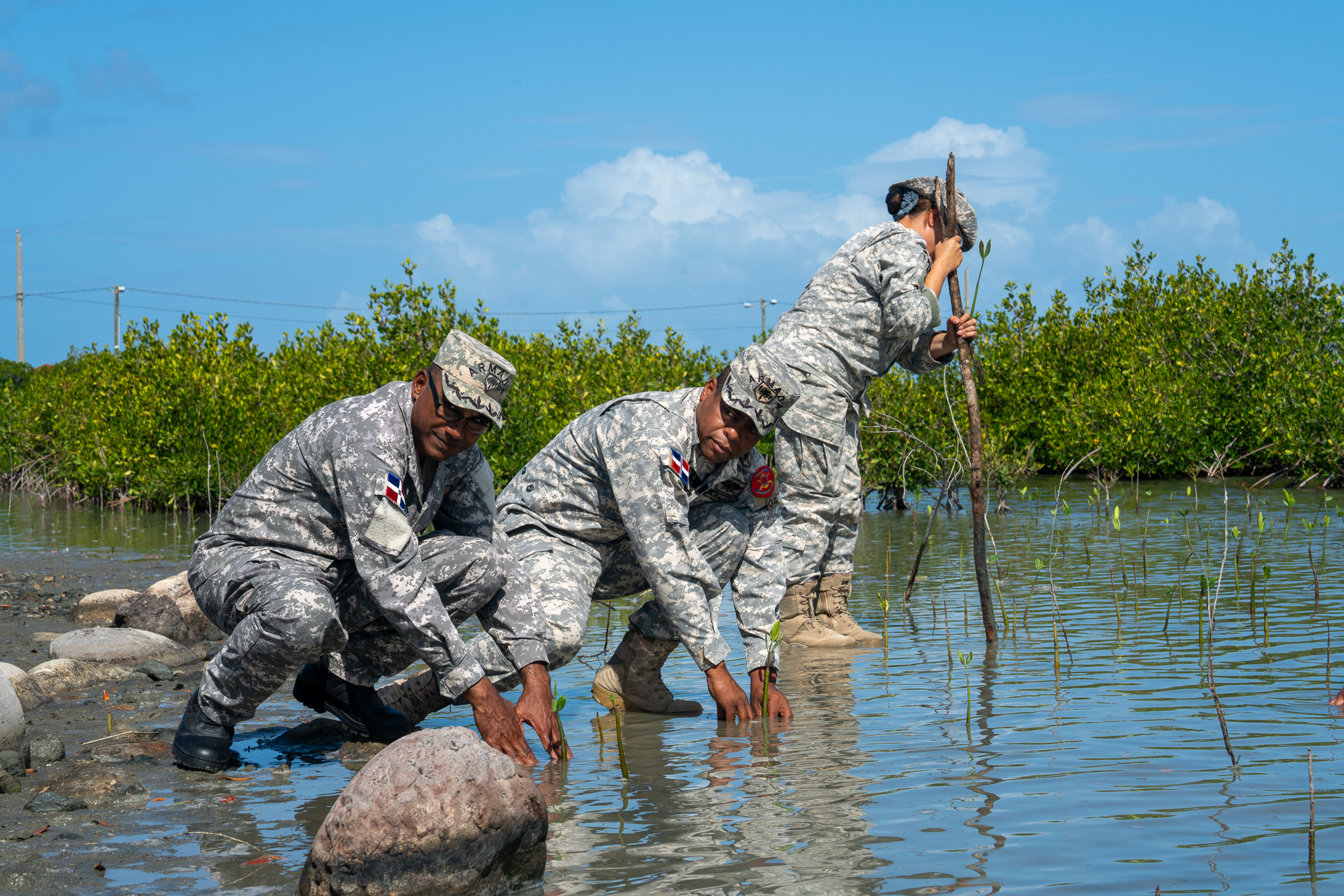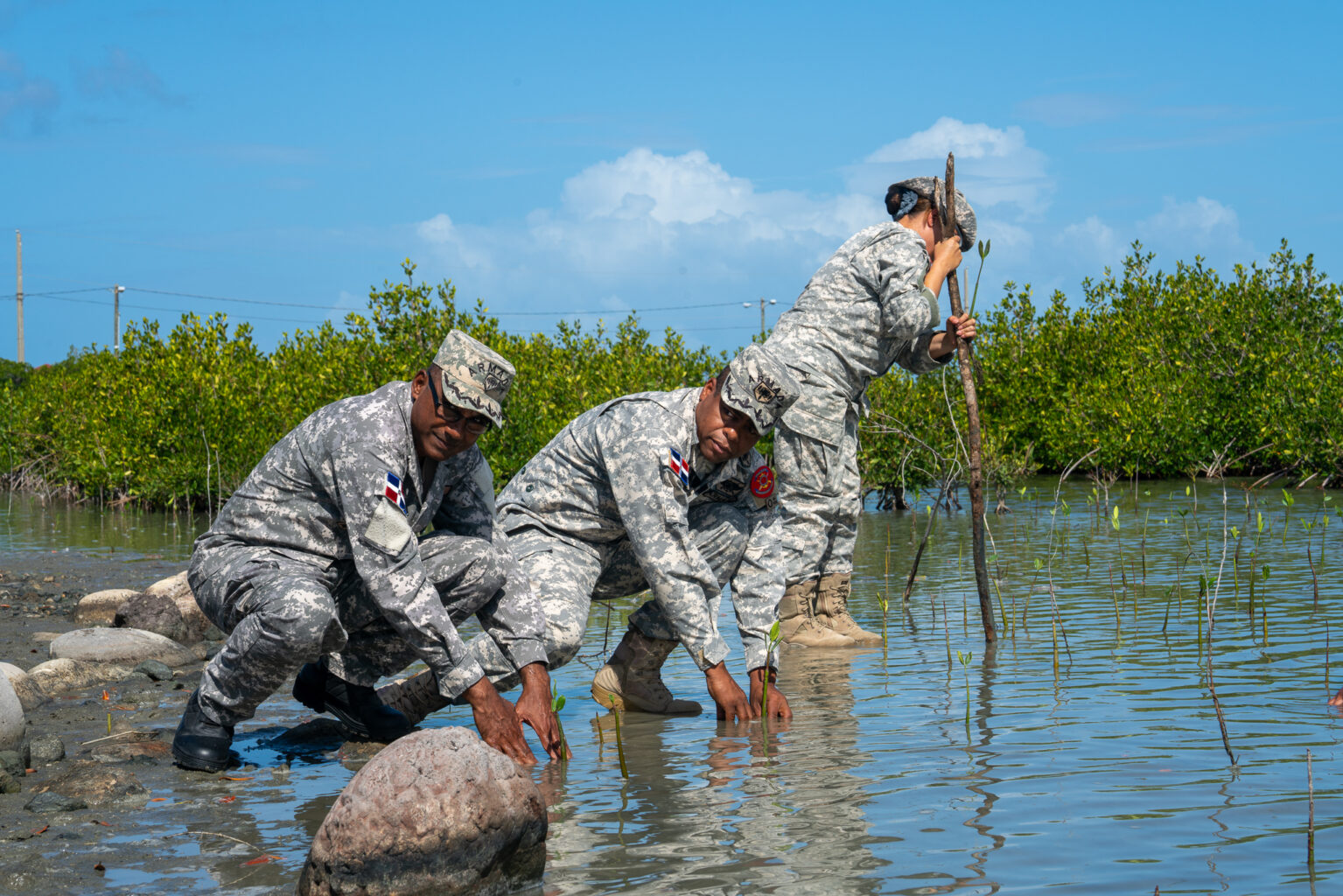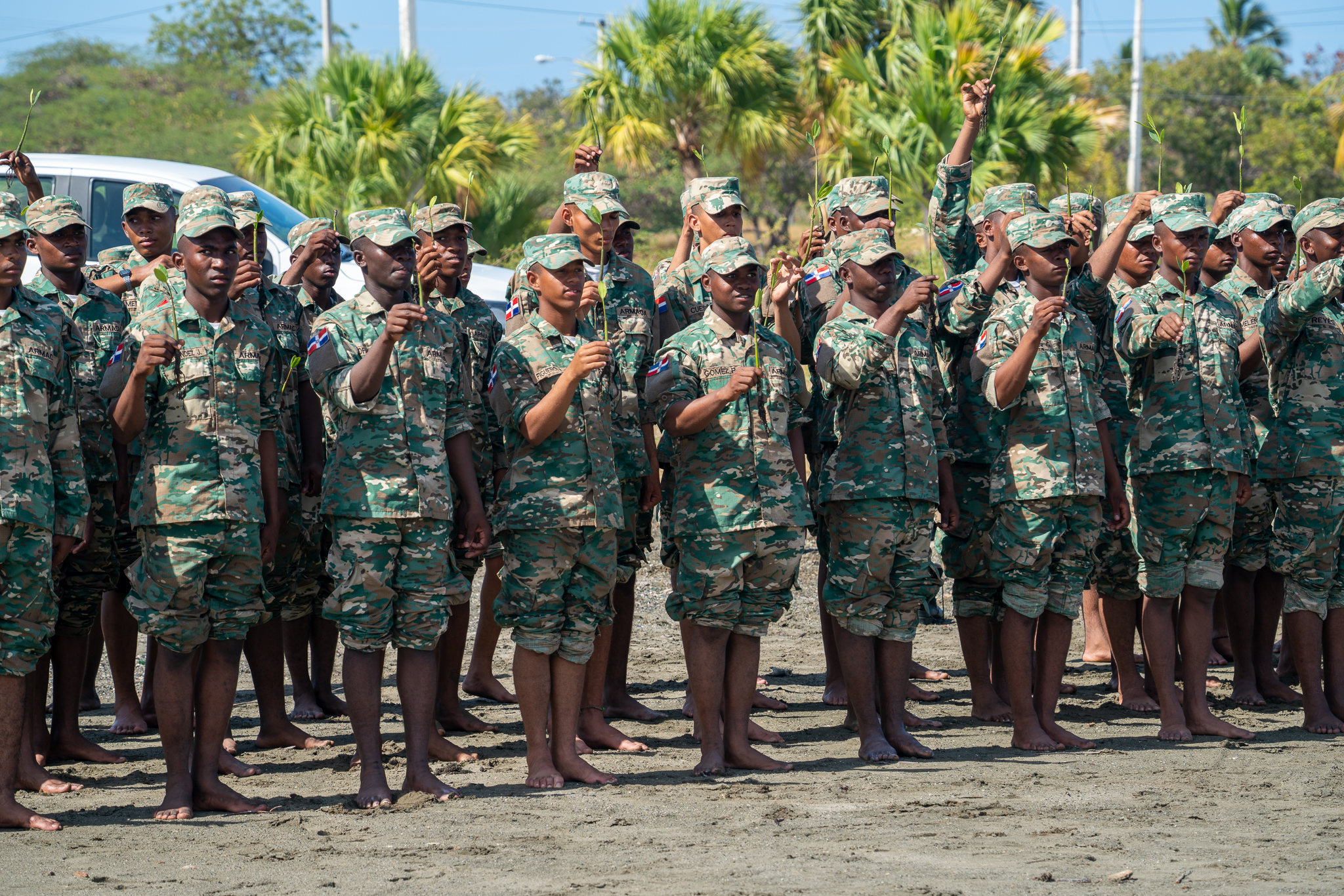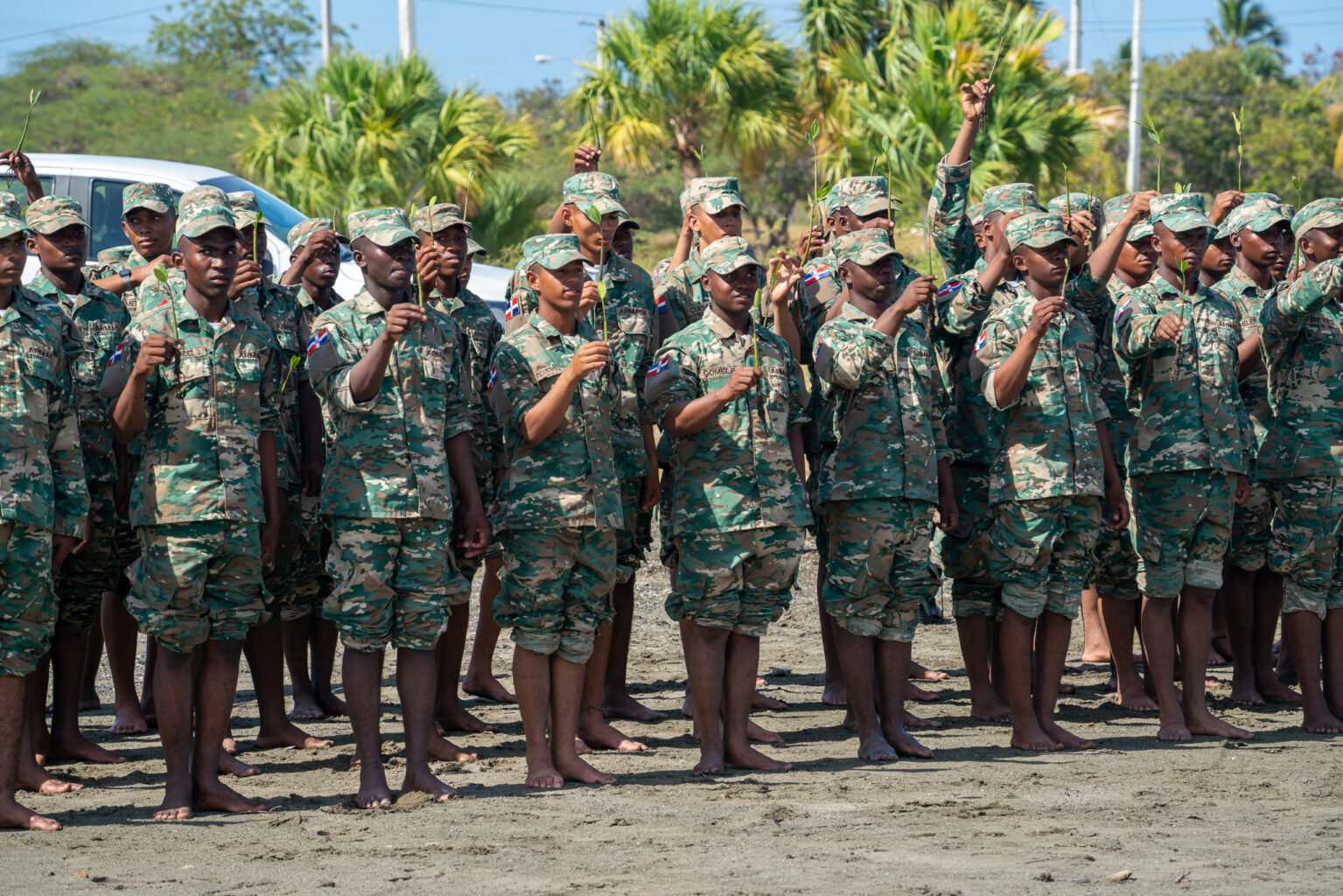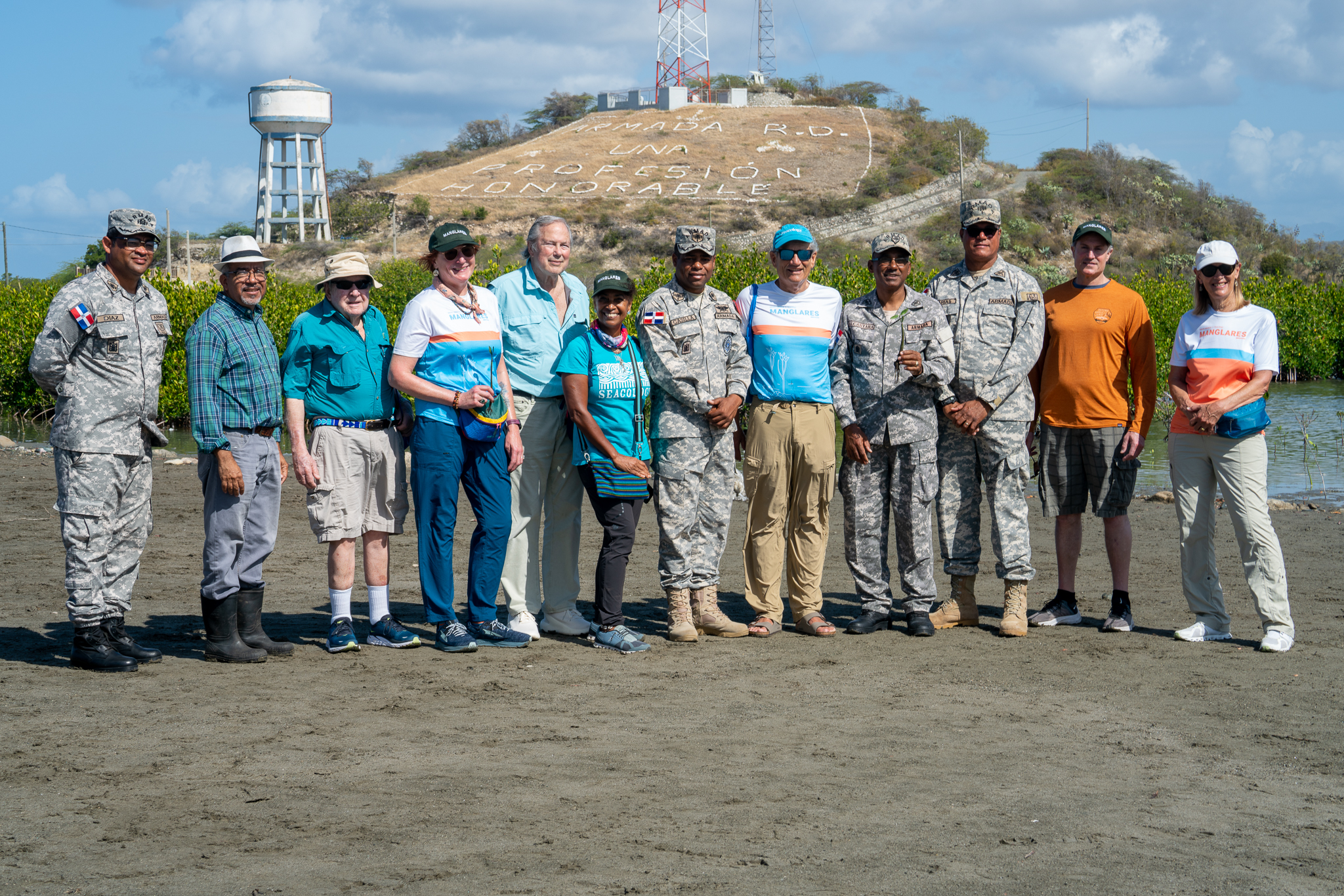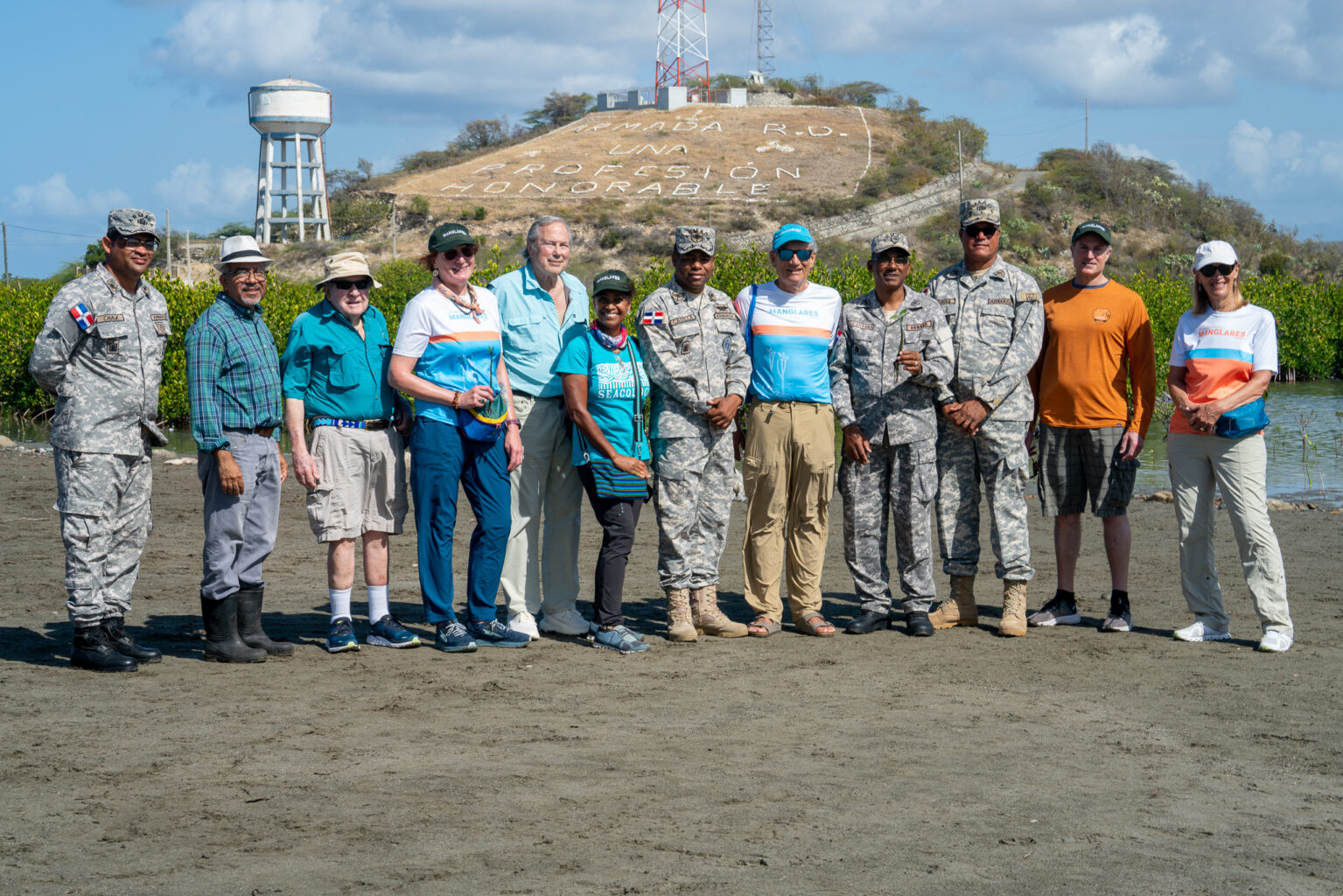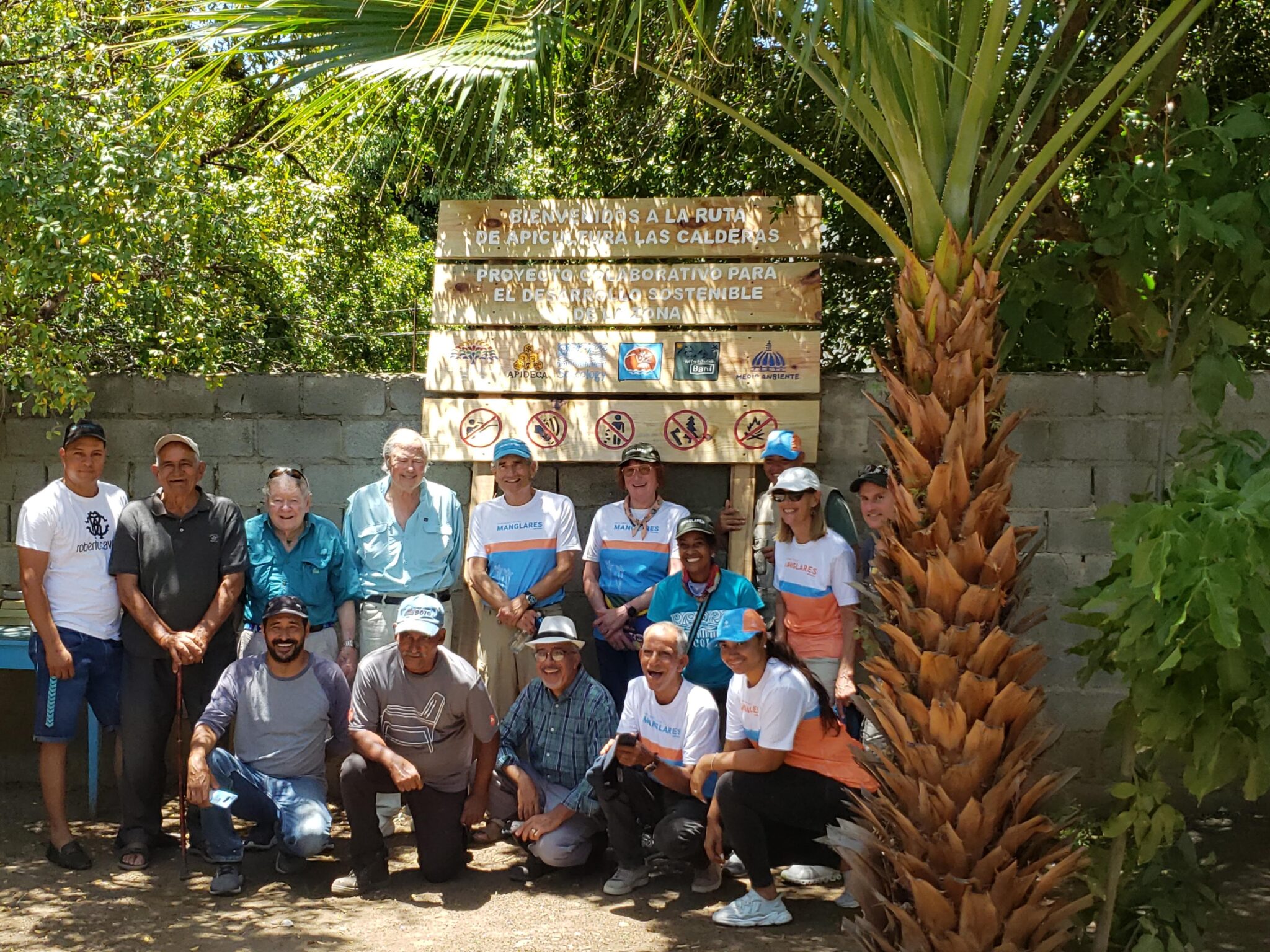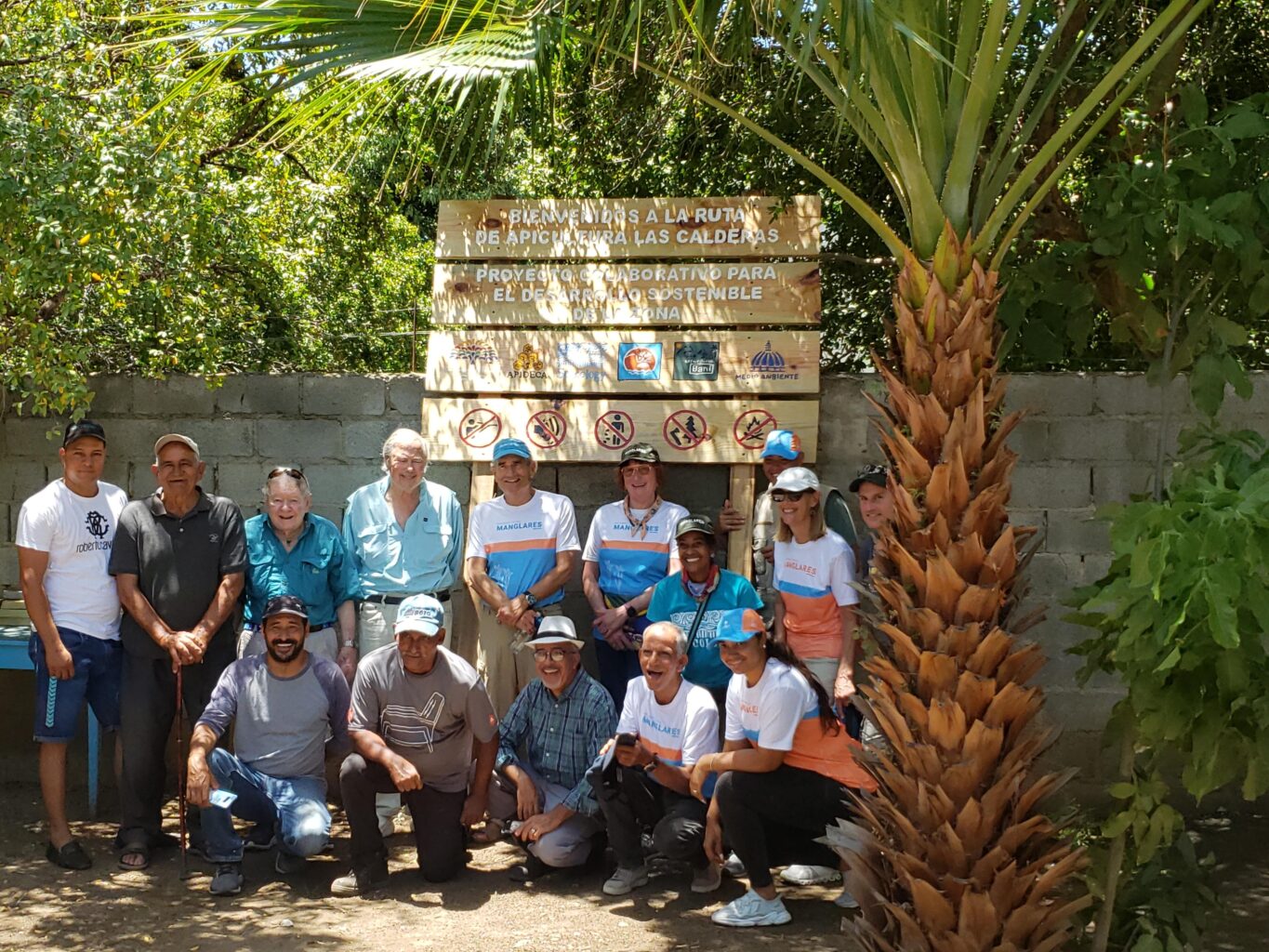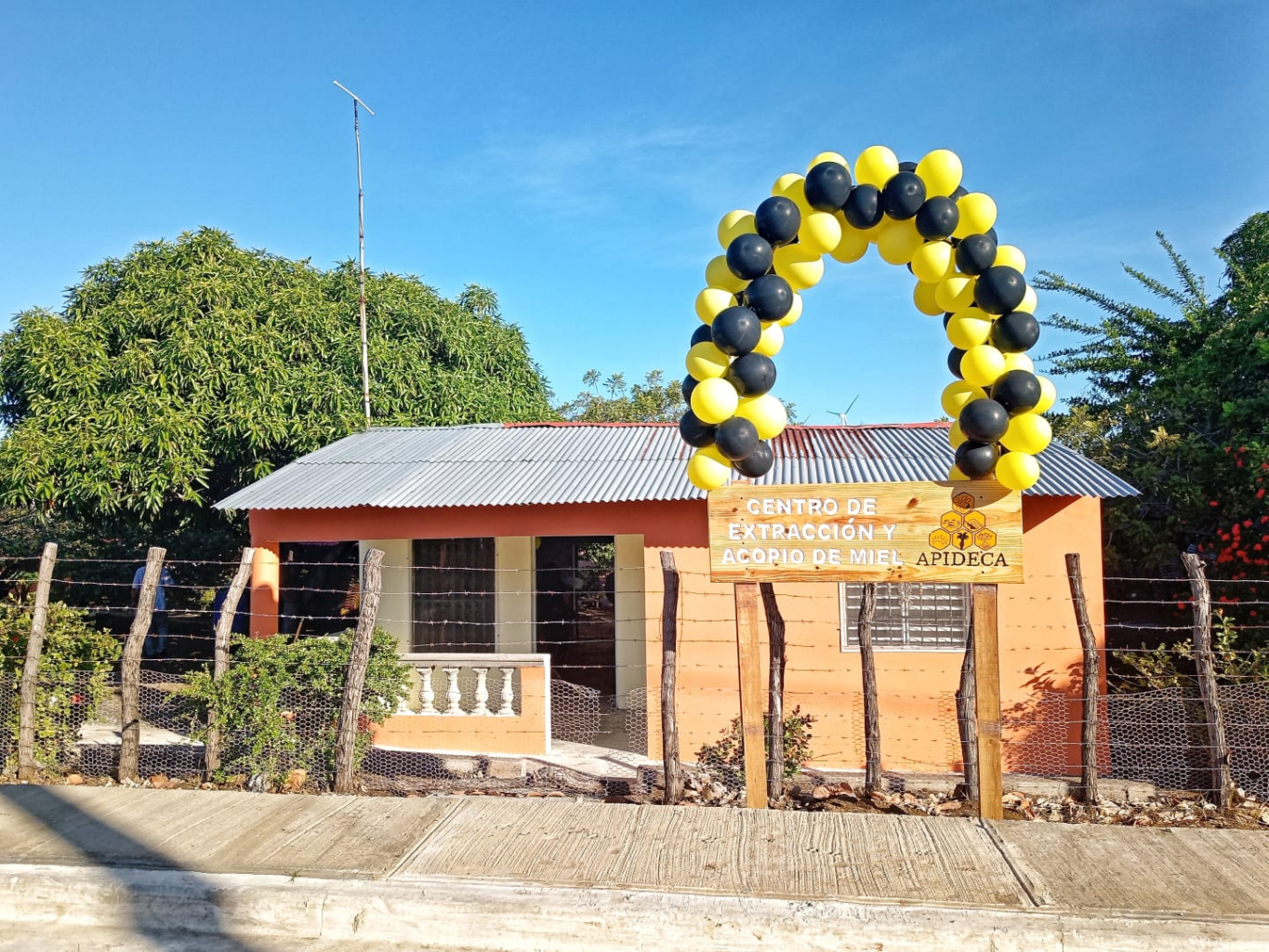Las Dunas de Las Calderas is a protected area on the south-central coast of the Dominican Republic, only one and a half hours’ drive from the capital of Santo Domingo. It’s a stabilized dune system covered mostly by dry forest vegetation. Despite its dry appearance, it is teeming with life, home to the endangered Hispaniola parrot, rhinoceros iguana, recently discovered curlytail lizard (Leiocephalus sixtoi), hawksbill and green turtles, and American manatee. The forest comprises over 30 species of plants, five of which are endemic. The area has a mix of palm groves, cacti aggregations, button and red mangroves, and other dry forest species.
Though on paper the area is protected, it is threatened by clearing for agriculture, the felling of mangroves for coastal development, and extraction of sand for construction. Illegal removal of plants and animals for sale is an ongoing problem, as is poor waste management.
This project supports the beekeepers of nearby Las Calderas, who serve as de facto custodians of the area and see the environmental threats first-hand. They are highly motivated to protect the forest because its diverse plants, including mangroves, provide food for the bees and make the area perfect for honey production.
This project gives the beekeepers specialized training, helping them produce higher-quality products that can be sold for higher prices in broader markets. The training also includes accounting, marketing and sales. They are also building a honey-handling facility. Community members are learning about sustainable use of the protected area. There is training on solid waste, including using more reusable or biodegradable materials and improving sorting and handling. Environmental education activities and workshops target children and teens in particular.
This project is very similar to the successful Seacology project at El Tablón. We are working with the same organization that provided beekeeping training, Consorcio Ambiental Dominicano.


